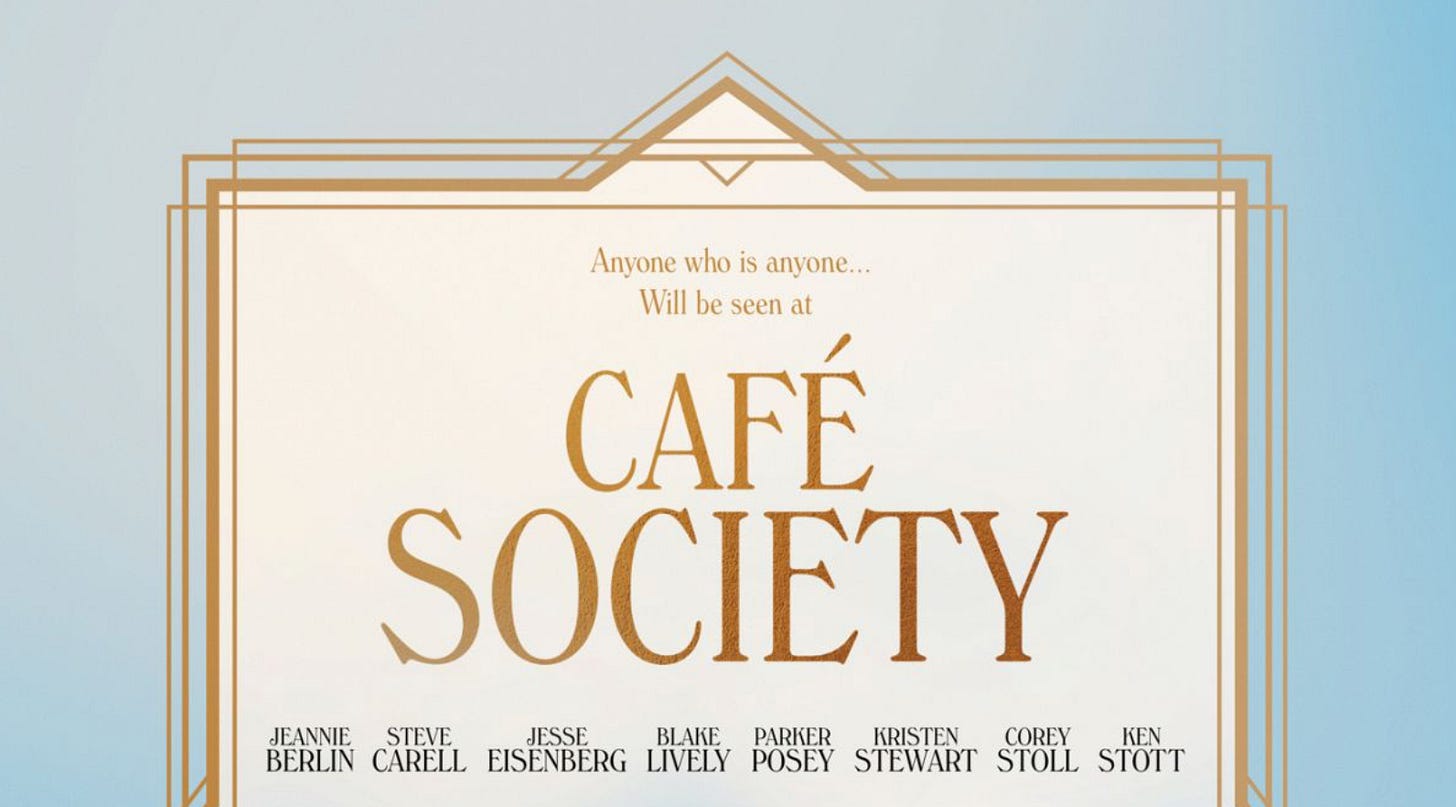An old movie review. Wanted to share here, because I don’t think this movie got enough attention. Woody Allen is interesting!! In his own league. If I were to contextualise him in Indian context, I would call him a very, very twisted Hrishikesh Mukherjee or Basu Chatterjee. He takes ordinary people and everyday situations and weaves some very interesting stories. Only Allen is a bit twisted with his understanding of life and relationships. I recall a scene from his famous Annie Hall. You know, that movie with the famous scene outside the film theatre scene where the REAL Marshall McLuhan shares his opinion. Allen’s character is interested in finding out the secret behind happy relationships so he approaches a decent looking couple and asks them. The response is noteworthy, its two people who are not very interesting who are interested in each other. In that one-short scene without any closeup, he establishes two simple facts, ‘stability does not (always) result from interesting’, and ‘like attracts like’. I have seen only a few of his movies, but the last three that saw had a great impact on me. Cafe Society, being one of them. Here is a review that I wrote a few years ago.
Cafe Society, a review
An unexamined life is not worth living, but an examined one is no bargain.
In today’s age of three-dimensional movies, where directors work very hard for you have to an ‘experience’ through special effects, there are few filmmakers who still focus on making you think about the meaning of our existence. Woody Allen (despite all other issues that I have with the director) has explored several ideas around guilt and morality (Match Point), nostalgia (Mid Night in Paris), wonder (Magic in the Moonlight), and romance vs. love vs. relationship (Café Society) in the recent years.
Subtle concepts such as nostalgia, guilt and an internal struggle to remain moral, are hardly given much space in movies today, except may be a few sentences or a few seconds of an expression (please comment and share if you know of movies that have dealt with such concepts/emotions—without making them overtly heavy). But to base entire movies on these emotions that we all experience, more often than we acknowledge in our goal driven lives, is what only a fine artist, and a keen observer of human mind can achieve.
Café Society. like his other movies, which lately have taken place outside of the USA, is driven by location and time period in which the movie is set, just as much as the characters and plot. In fact, since in Café Society even the plot is secondary to the characters – we get to enter the minds of protagonists. What a treat!! Set against the backdrop of 1930s Hollywood, Café Society is a story of Bobby (Jesse Eisenberg), who moves to Los Angeles in search of a job. Bobby, while working for his uncle, falls in love with his secretary who has a mystery lover, and cannot reciprocate his feelings. But when she is rejected she turns to Bobby and reluctantly falls in love with him. Since this is not a mere girl-meets boy story, nor is it a tragedy ---Allen deals with the paradox of choice. Can you be so sure that your choice today will lead to continued happiness? If you do realize later, and all too late, that your choice was not really ‘your’ choice but a result of circumstances or your own opportunistic, calculating or even practical nature, are you justified if you want to revert to the way things were, even if it means hurting the ones whose support has led you through your difficult times?
Without giving away much, I can say that Café Society is a love story, that not only does not end happily but actually never ends. The viewer is left with an angst, as people are in real life, when they come at crossroads of facing the implications of their past decisions on their present. Research shows that the number of movies with a love story as a primary theme but with an unhappy ending has reduced over the years (may be never was that high) to keep the audience ‘happy’. But in that pleasing of the audience, writers and directors become more contrived, and human dilemmas remain unexplored. Shall we dare to fall in love even if we do not know its fate?
Café Society does not give an answer, but only provides a scenario, and throws the ‘thinking’ back in in our court.
I carried the confusion of both lead characters when I walked out of the theatre. Even though I do not enjoy movies that leave the ending to the viewer, I will still be looking forward to Allen’s next movie, if only to see what questions he raises next.




